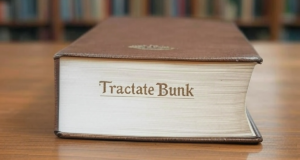By Susan Lefkowitz-Li, J Street donor
 New York, September 12 – My status as wealthy Jewish-American grants me numerous privileges, which I acknowledge, but I savor none of them as much as I enjoy pontificating about the excessive measures the Jewish State takes to protect its citizens, a task I undertake from the comfort and sanctuary of the suite I inherited at Daddy’s firm.
New York, September 12 – My status as wealthy Jewish-American grants me numerous privileges, which I acknowledge, but I savor none of them as much as I enjoy pontificating about the excessive measures the Jewish State takes to protect its citizens, a task I undertake from the comfort and sanctuary of the suite I inherited at Daddy’s firm.
Yesterday’s somber anniversary of the deadliest terrorist attack on US soil in history called to mind the horrific events of that day, back when I was in an out-of-town college, and restrictions on New York-area air traffic prevented me from riding in my father’s helicopter all the way back home to be with him at our town house. The frustration, anger, and powerlessness of that time have stayed with me, forming part of what drives me to work toward the prevention of anyone else’s concerns getting in the way of what I feel is right. Media images and commentary sympathetic only to Palestinian distress give me all I need to form an opinion about the generations-old conflict; suggesting that I absorb and assimilate the concerns of Israelis, even fellow Jews, takes me out of my comfort zone and will not put you on my list of people to invite to the next celebrity-studded event.
I do my assimilating on my own terms, ever since preschool.
Departing from the progressive line on Israel-Palestine would violate the psychological cocoon that parallels my office building’s redundant security systems and its comfortable distance from Middle East violence. The celebrities and media bigwigs whose company I cultivate help shield me from anything outside my cozy set of assumptions about how the world works, but more importantly they help shield me from anything outside my cozy set of assumptions about how the world should work. I can’t risk puncturing those redundant psychological security systems by considering other ideas about what is and is not possible for Israel to do. I might not get invited to the next fundraiser or awards presentation, an unacceptable prospect.
Fortunately, Daddy’s work, and now my own, have brought me into contact with enough political figures who, beyond echoing my cloistered assumptions about international affairs, can leverage my funding to make those assumptions the basis for diplomatic policy.
If Israelis want me and my colleagues to take their security concerns seriously, they had better come around to redefining those concerns to match mine.
Please support our work through Patreon.




